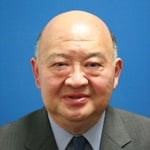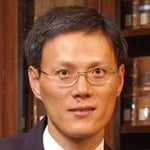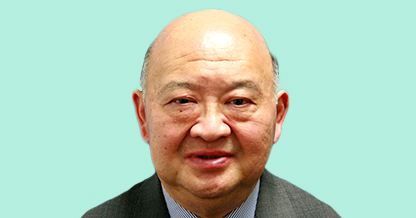The Legal 500
Webinars
The future of law and business in Hong Kong
5 May 2021, 4.00pm Hong Kong
← Back to Webinar homepage
The future of law and business in Hong Kong
Overview
Is the independence of the Hong Kong judiciary under threat? That was the question posed to a panel of seasoned lawyers The Legal 500’s and Haldanes’ webinar discussion, The Future of Law and Business in Hong Kong. To debate the issue we welcomed a who’s who of the Hong Kong and British legal worlds, with former Hong Kong chief justice Geoffrey Ma Tao-li and former British Lord Chancellor Charles Falconer being joined by Haldanes partner Jonathan Midgley, Jonathan Caplan QC of 5 Paper Buildings and Professor Lin Feng, associate law dean at the City University of Hong Kong. Cliff Buddle, special projects editor to the South China Morning Post presided over the discussion.
The below summary piece, focusing on the comments of former chief justice Ma, is published with the kind permission of South China Morning Post.
Former Hong Kong chief justice Geoffrey Ma Tao-li has defended the role of foreign judges in the Hong Kong, arguing they should continue to sit on the bench and help enforce the mini-constitution which he described as the basis of judicial independence.
In his first major public engagement since stepping down in January this year, Ma’s comment appeared to target Western critics who had urged foreign judges in Hong Kong to quit as a matter of protest in the wake of the enactment of the Beijing-imposed national security law.
Ma, Hong Kong’s top judge from September 2010 to January this year, said while critics focused on provisions of the security law that allowed Beijing to exercise jurisdiction over complex cases, they should also take into account its references to human rights and the Basic Law, the city’s mini-constitution.
‘All these matters are stated in the Basic Law, reflected in the judicial oath, and when a judge comes [and] is in Hong Kong, that person… is duty-bound indeed, and has taken an oath to enforce the Basic Law.’
Asked to elaborate on his rationale, Falconer on Wednesday said: ‘I do not think that the pinnacle of the UK legal system should [give] due credibility to a system where there is a massive hole in the rule of law in Hong Kong.’
Falconer argued that the national security law ‘indicates that a central basis of the rule of law in Hong Kong is gone’. He said it was most exemplified by Article 55 of the security law, which allows the city’s government to ask Beijing to exercise jurisdiction over a national security case if it is complex, when a serious situation occurs and the city’s government is unable to effectively enforce the law, or when a major and imminent threat to national security has occurred.
‘This healthily functioning system of high-quality judges were able to resolve, for example, non-political criminal cases… but running alongside it, is the option for the Chinese government to pick up on those they don’t like and deal with them outside the established legal system, and that is why the rule of law is now a charade,’ he said.
‘Lord Falconer takes [Article 55] to mean: if you don’t like the result, we’ll have another go. Well, [the article] doesn’t say that, and to say that it does, is actually speculation.’
Lin said at the webinar that Article 55 would only be invoked if Hong Kong faced an emergency situation endangering national security.
He argued that most states ‘actually depart from the rule of law and natural processes’ in handling national security cases.
‘It’s a great shame that there is a suggestion from overseas that this system is in some way broken… It simply isn’t. It is not a broken system, and the idea that people, particularly from England, are saying that Hong Kong is broken, I think, has turned into a political sport at the expense of those living here,’ he said.
At the session, Ma noted the national security law had empowered the city’s leader to designate judges to hear cases under the legislation. ‘This is an important question as far as Hong Kong is concerned, where you have the strange provision of the designation of judges,’ he said.
Ma’s remark was interpreted by pundits as indicating he found the provision odd, but he claimed on Wednesday he was misquoted.
‘What I was doing in that particular talk… was saying that some people have regarded that provision in the national security law as being odd or strange,’ he said.
‘I never comment on legislation, say this is good, great, bad or strange, I never do that and never will.’
Speakers

Mr Geoffrey Ma Tao-li GBM QC SC
Former Chief Justice of Hong Kong.

Lord Falconer
Baron Falconer of Thoroton, Former Lord Chancellor and Secretary of State for Constitutional Affairs from 2003-2007.

Mr Jonathan Caplan QC
Appointed as Queen’s Counsel since 1991.

Professor Lin Feng
Professor of Law and Associate Dean of the School of Law of City University of Hong Kong.

Mr Jonathan Midgley
Senior Partner of Haldanes Solicitors and Solicitor Advocate since 2013.

Moderator: Mr Cliff Buddle
Special Projects Editor, South China Morning Post.
In Association With

Haldanes
Established in 1975, Haldanes is a Hong Kong-based law firm experienced in serving the needs of clients, both locally and throughout the Asia-Pacific region. The firm has a strong reputation across all of its practice areas, particularly in criminal defence, commercial litigation and dispute resolution, commercial and entertainment, matrimonial law, intellectual property and competition law.